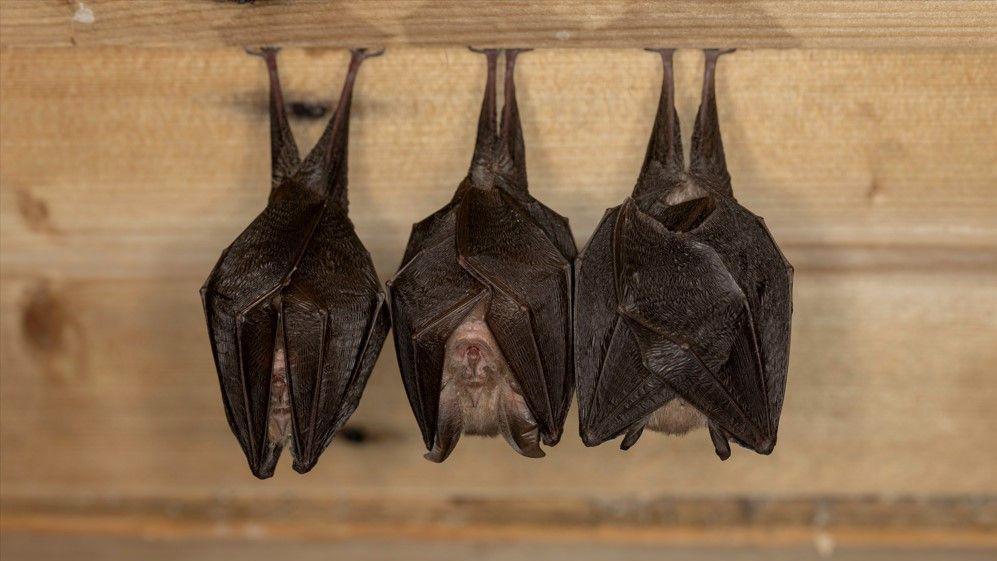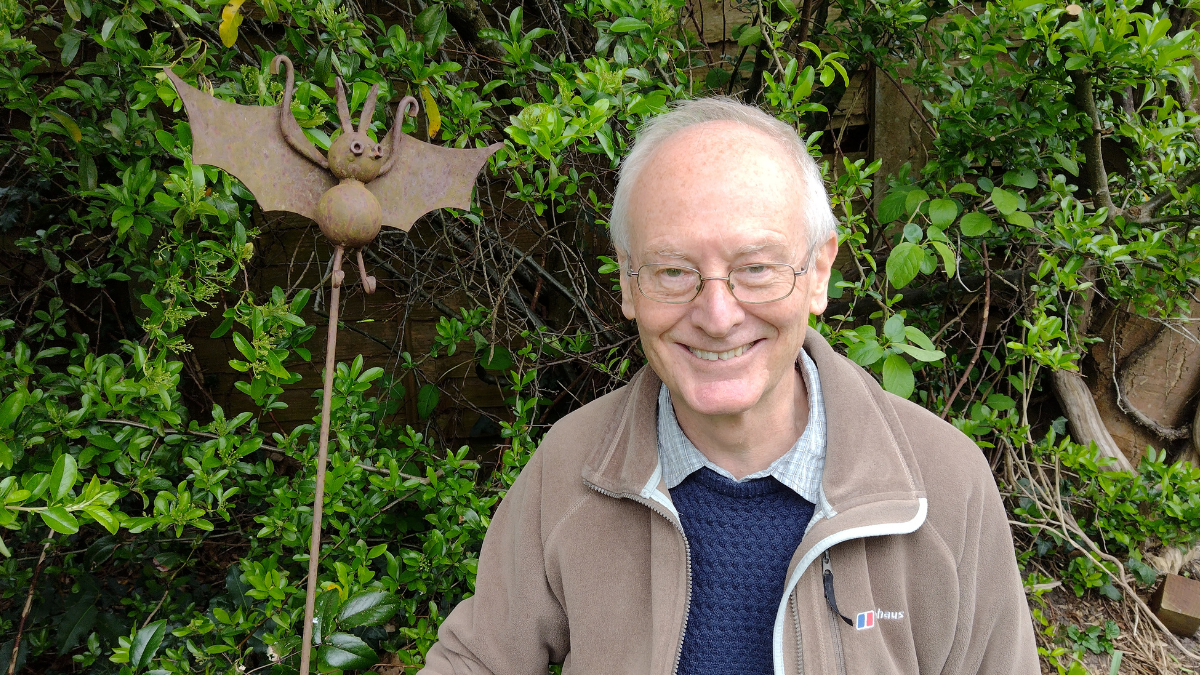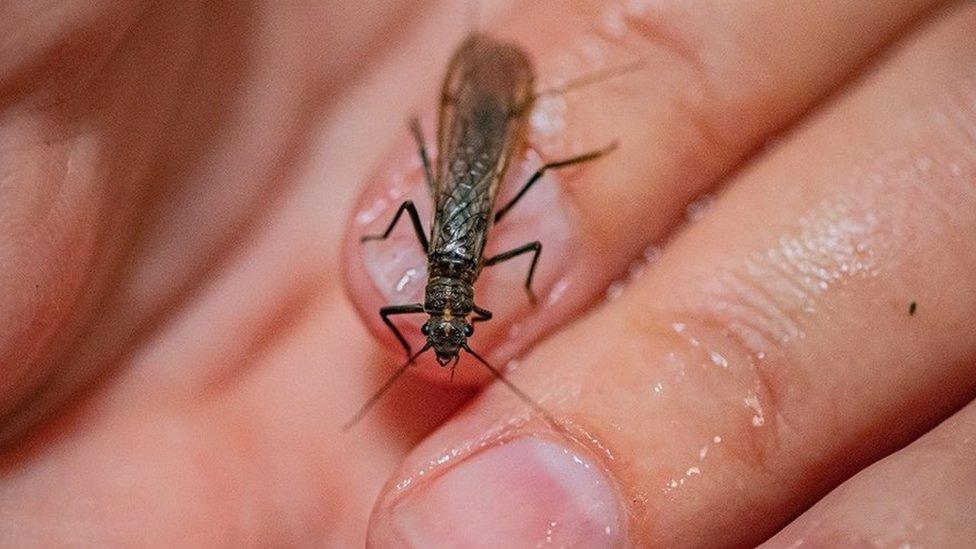Bats have complex social lives, researchers say

Lesser horseshoe bats are among the species being studied during the project
- Published
Bats have complex social lives, share food and actively maintain friendships, researchers have said.
A University of Chester project has been monitoring 10 different bat roosts in north Wales.
Researchers are currently developing ultralight and self-powered tracking devices, because existing GPS can be too heavy for the flying mammals.
"Our wearable devices will allow the movements, behaviour and social networks of individual small-bodied bats to be reliably quantified for the first time," Doctor Christina Stanley said.
Protected species
The new nanotechnology being developed is able to monitor the real-time movements of individual bats remotely and it is hoped it will improve the tracking of small-bodied animals across the world.
The University of Chester project team, comprising of animal behaviour scientist, Dr Stanley, Professor Tessa Smith and PhD student, Lucy Morison, are working alongside the Vincent Wildlife Trust and Professor Yu Shi at the University of Leeds.
The team said bats were a protected species which played a vital role in many ecosystems by controlling insect populations, pollinating plants and dispersing seeds.
But they are said to be at a high risk from sound and light pollution which can affect their ability to forage.
Prof Smith said this was "groundbreaking work to further understand the needs of the wildlife around us".
The study, which is funded by the Leverhulme Trust, is the focus of a free talk held at Chester Town Hall later as part of the University of Chester's Festival of Ideas.
Listen to the best of BBC Radio Merseyside on Sounds and follow BBC Merseyside on Facebook, external, X, external, and Instagram, external. You can also send story ideas to northwest.newsonline@bbc.co.uk, external
Related topics
- Published23 April 2024

- Published22 August 2023
